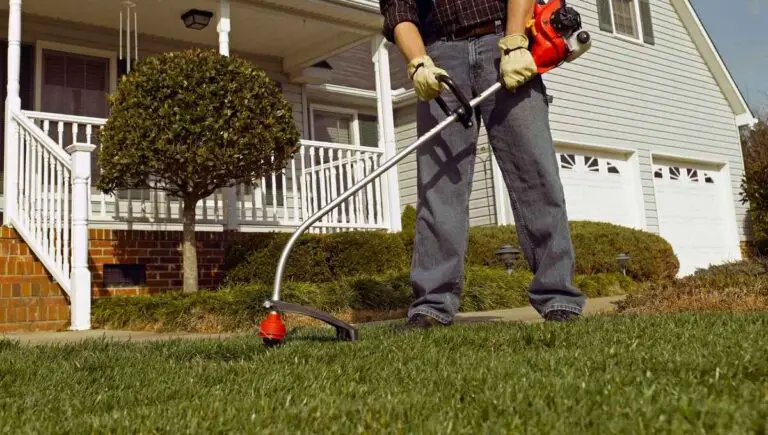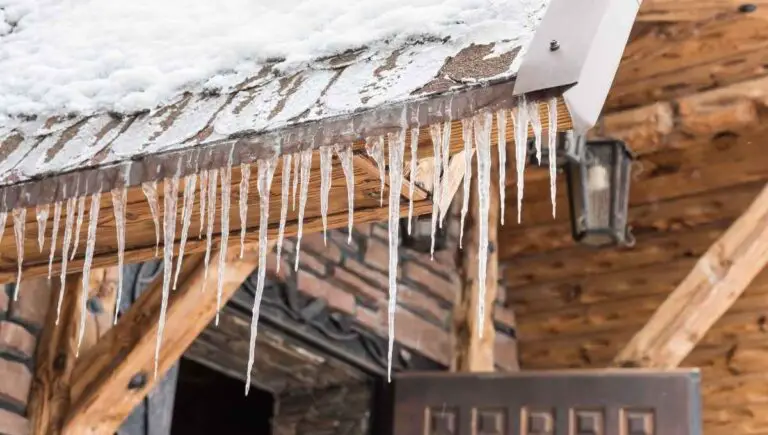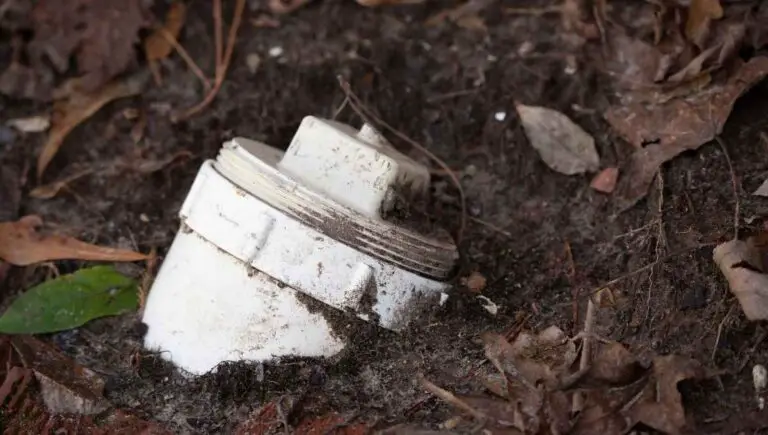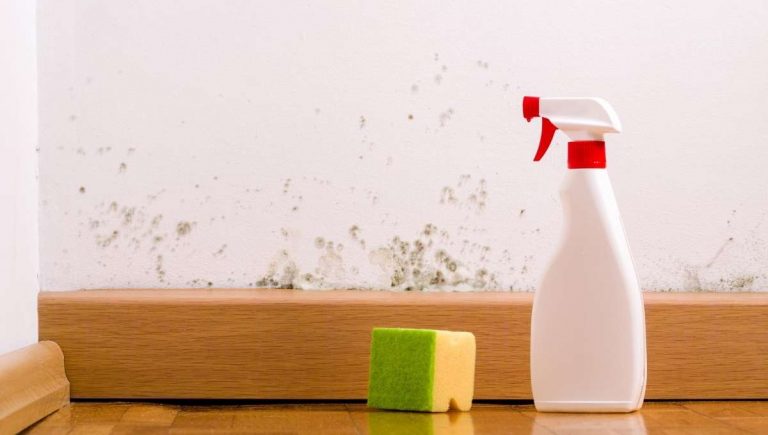What To Do if Your House Smells Like Gas (Do This ASAP!)
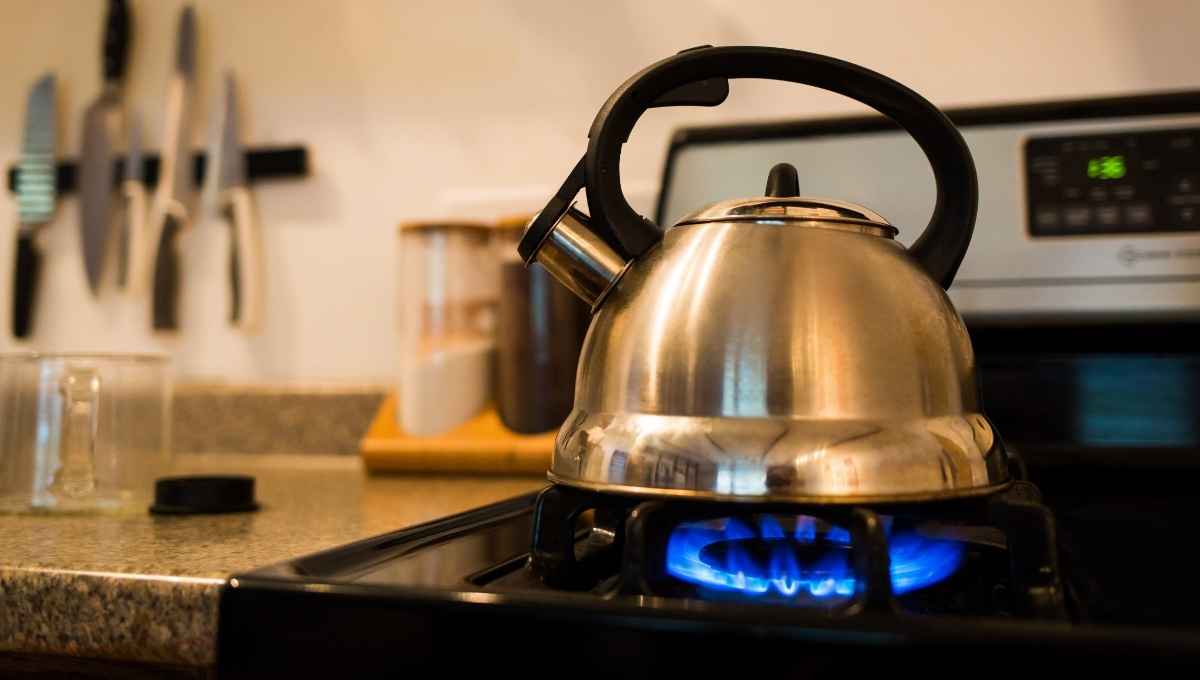
Walking into your house and smelling gas can cause you to panic. But, if you have never dealt with a situation like this, you may not know what to do. So, what should you do if your house smells like gas?
If your house smells like gas, you should assume that there is a natural gas leak. Therefore, you should leave your house immediately, call 911, the fire station, and your gas provider.
There are also plenty of things you should not do when you smell gas in your house, which we will let you know in this article. We will also discuss how you can prevent gas leaks from happening in the future.
If you are reading this and are smelling gas in your house right now, LEAVE IMMEDIATELY to a safe place. You do not want to be around your house if an explosion happens.
This post contains affiliate links from Amazon and other stores. This means Yard Blogger may earn a commission if you make a purchase using any of our links. Please refer to our full affiliate disclosure policy for full details.
Here’s a Quick Pro Tip!
Usually, when your house smells like gas, a gas leak is nearby and you should evacuate as soon as possible. But, sometimes you can’t always smell gas even when there is a gas leak!
To keep you safe, we recommend having a natural gas detector in your house.
Here are some of our favorites from Amazon:
1. Gas Leak Detector – Offers a voice notification when levels become too high
2. Natural Gas and Carbon Monoxide Detector – Great for protecting you from all harmful gases
What to Do When Your House Smells Like Gas
Smelling gas in your house is very serious and should be acted upon immediately. We will walk you through exactly what you should and should not do if you find yourself in this situation.
What Do I Do if I Smell Gas in My House?
If you smell gas in your home, you should leave your house immediately and get to a safe area. Then, call 911 to notify the police and fire officials while keeping others away from your house.
You then need to call your gas company and let them know that you smell gas in your house. This could indicate that there is a gas leak. They will send someone from their company to inspect the situation.
Do not enter your house again until they give you the go-ahead.
Should You Open Windows If You Smell Gas?
You should never open your windows if you smell natural gas in your home. Natural gas can be combustible when it makes up 5 to 15% of the air in a given space. If you introduce more air to a space, the gas has a higher chance of combusting.
As soon as you smell natural gas in your house, you should evacuate your house as soon as possible ensuring that everyone else leaves as well, including pets.
Do not try to air out your house by opening up any windows as this can cause the gas to combust and cause an explosion.
How Long Should You Air Out Your House After a Gas Leak?
Once a gas leak is resolved, you should air out your house for typically fifteen minutes to an hour. To do this, open up all of your windows and doors at the same time.
However, the time frame depends on how severe your gas leak was. Also, if it is a particularly windy day, you can air out your house for a less amount of time.
If you’re unsure of how long you should air out your house for your specific situation, you can ask your gas company. Since they dealt with the situation themselves, they should have the best advice for you.
You might also enjoy our post on If You Need a Permit To Run a Gas Line
Should I Leave the House if I Smell Gas?
If you smell gas in your house, you should leave your house as soon as possible. Make sure that you inform everyone else to leave the house and take your pets.
Smelling gas in your house can indicate that there is a gas leak. When there is a gas leak, there’s a chance that the gas can combust and cause a severe explosion.
Therefore, you will want to be as far away from your house as possible when this happens.
What Should You Not Do if You Smell Gas in the Kitchen?
The most important thing you should not do if you smell gas in your kitchen is to use any electrical device, light a flame, or open your windows to air out the smell.
When you smell gas in your kitchen, your main focus is not to do anything that will allow the gas to combust. The gas will combust if more air enters the space or if there is a flame or spark.
Here are some special DO NOTs you need to remember when you smell gas in your house:
- DO NOT try to air out the house by opening any windows or doors
- DO NOT smoke or light a flame
- DO NOT turn on any appliances, switch any lights, or use a phone – the electrical charge could create a spark.
- DO NOT open your garage door – this could cause a draft of air to enter the house.
Is It Bad to Sleep in a House With a Gas Leak?
You should never sleep in a house with a gas leak. As soon as you notice a gas leak, you need to leave your house as soon as possible and call your gas company to deal with the situation.
A gas leak can cause an explosion at any moment. Gas in the air will combust when more air enters the space or a spark or flame nearby.
Anything in your home can cause a spark that uses electricity, such as your telephone, microwave, TV, or even turning a switch on and off.
Therefore, you should not be in your house until the gas leak is resolved. Your gas company will let you know when it is safe to re-enter your home.
All About Gas Leaks
Now that we know what you should and should not do in the event of a gas leak, let’s discuss exactly what a gas leak is and how they happen.
How Do You Tell if There Is a Gas Leak in Your Home?
Because natural gas is odorless, gas providers purposely add a strong smell to the gas so that you know when there is a leak. The smell typically smells of rotten eggs or skunks.
So, if you suddenly smell a strong scent of rotten eggs or skunk – or something that just doesn’t usually belong in your home – it is a good indication that you may have a gas leak.
In some cases, you will not smell anything but hear a hissing sound. This hissing or whistling is the sound of the gas leaking out of a small hole in a pipe.
What Does Gas Smell Like?
Naturally, gas does not have a scent- it is odorless. So, gas providers add a harmless chemical called mercaptan, which smells like rotten eggs. This distinctive odor lets a homeowner know where there is a gas leak.
The smell of gas is powerful and you will instinctively know that it is something not good. It is a very acidic and pungent smell. It will likely cause the inside of your nostrils to burn a little bit.
How Does a Gas Leak Happen?
A gas leak happens when your gas piping system springs a leak. This can occur in any part of the pipeline system equipment, mainly the compressors, that may have come loose.
The gas leak can occur because, over time, gas lines change shape from the constant use. As they age, tiny fractures in the piping can occur, eventually leading to small spaces that allow gas to leak out.
Gas leaks can also occur when a gas appliance is not installed correctly. For example, the gas pipe may be connected too loosely to the appliance, creating space for gas to leak out.
You might also enjoy our post on If It Is Illegal to Leave a Refrigerator Outside
How Do I Identify a Gas Leak?
The most obvious way to identify a gas leak is the smell of the gas itself. The gas will smell like rotten eggs, which is a tough scent to ignore. You may also hear a whistling or hissing noise.
Additionally, you can use a gas leak detector to detect even a minor change of gas in the air. If you own a gas appliance, you should always have a gas detector in your kitchen for cases like these.
Can You Always Smell a Gas Leak?
If a gas leak is minimal, you may not always be able to smell the gas. Instead, you should listen for a whistling or hissing noise, especially in your kitchen or where you have gas appliances.
Another indicator of a gas leak is plants dying for no reason. If you noticed that a once-thriving plant is no longer alive, this may indicate that a gas leak is close to that plant.
You can also use a natural gas detector to measure the amount of natural gas in your home.
Is a Gas Leak an Emergency?
A gas leak is an emergency that you need to take seriously and act upon as fast as possible. When gas leaks in your home, there are many opportunities for the gas to combust and cause an explosion.
A gas explosion can be catastrophic to yourself, your home, and possibly even your neighbors. To protect everyone, you should act upon a gas leak as soon as possible.
Call your local police station and your gas provider to solve the issue.
What Are the Dangers of a Gas Leak?
The dangers of a gas leak include the potential for a fire to begin and natural gas poisoning. Therefore, you should always act as fast as possible if you suspect a gas leak in your home.
Apart from the gas starting a fire, you can suffer from natural gas poisoning. This can cause severe symptoms that can affect you in the short-term and long-term, and possibly death.
Can a Gas Leak Make You Feel Sick?
If you are exposed to high levels of natural gas, you can suffer from natural gas poisoning. This can cause you to feel several symptoms, such as nausea, fatigue, and confusion.
These are the common symptoms experienced during natural gas poisoning:
- Fatigue
- Severe headaches
- Memory problems
- Loss of concentration
- Nausea
- Irregular breathing
- Loss of consciousness
- Suffocation
Fixing and Preventing Gas Leaks
Now that you have dealt with and survived the gas leak, you need to learn how to prevent them from happening in the future. We will discuss this and what to expect when fixing the gas line.
How Do I Prevent Natural Gas Leaks?
To prevent natural gas leaks, you should have a specialized plumber inspect your gas lines frequently. You should also check your gas meter frequently to ensure that everything is working correctly.
If your gas meter is spinning, gas is passing through and leaking somewhere along the pipelines.
You should also replace old gas fittings whenever you notice that the piping system is beginning to look aged. Old pipes are the main cause of gas leaks.
Essentially, maintaining your gas piping system is the best way to avoid any gas leaks. Even when you cannot have professionals inspect your system, you should take the responsibility to do it yourself.
However, you should never replace gas pipes yourself and should leave that up to the professionals.
You might also enjoy our post on If You Can Shoot a Snake in Your Backyard
Who Pays for a Gas Leak?
If the gas leak was located on your side of the meter, you are responsible for paying for it. But, if the gas leak is located on the other side of the meter, your gas company is responsible for it.
Unfortunately, you are responsible for paying for a gas leak on your side of the meter even if it was not your fault.
It is your responsibility to maintain your gas pipes and system once everything is installed. If you fail to do this, you will likely have a gas leak and will be responsible for paying for it.
Does Homeowner’s Insurance Cover Gas Line Replacement?
Your homeowner’s insurance will likely cover a gas line replacement if a contractor did the initial damage. But, if it is hard to prove that a contractor did not cause it, your insurance likely won’t cover it.
You should first determine if the gas leak occurred because of something of your doing or because of the utility company.
If it was the utility company’s fault, they typically pay for the repair and you don’t have to worry about insurance.
However, if the gas leak was your fault, then it is likely that your homeowner’s insurance will not cover the gas line replacement.
What if It’s Not a Gas Leak?
Sometimes other scenarios in your house can make you smell something like gas. We will discuss what may be happening in your house once you determine that it is not a gas leak.
My House Smells Like Gas but There Isn’t a Leak
If your house smells like gas but there is no gas leak, you likely smell sulfur. Sulfur can be released over time from bacteria buildup in your sewage systems or kitchen sink.
If you suspect sulfur may be causing the smell, you should use bleach and water to flush your sinks and toilets.
It is also possible that a sewage pipe may have burst under or around your house, so you should call an inspector to investigate the issue.
Why Would a Room Smell Like Gas?
Gas and sulfur smell very similar. So, if you are smelling gas in your room but you are confident that there is no gas leak, you may be smelling sulfur instead.
Sulfur is released when bacteria gross. The bacteria can grow in your sinks or toilets or even in your heaters. If you smell sulfur more strongly when you turn on your heater, the bacteria is likely growing there.
Does Dead Mouse Smell Like Gas Leak?
A dead mouse can smell similar to a gas leak. When a mouse dies, the carcass begins to decompose, emitting toxic gases that smell as foul As Natural Gas.
Although you may not be dealing with a dangerous gas leak, finding the dead mouse and cleaning it up is still essential.
When the mouse begins to decompose, it can release several harmful gases such as methane, hydrogen sulfide, ammonia, and pyruvic acid.
It is dangerous to breathe in these gases for an extended amount of time.
Is It Normal for Your House to Smell Like Gas?
It is not normal for your house to smell like gas and usually indicates that there is a problem that needs attention. You should first check if you have a natural gas leak.
If you have a gas leak, this can be very dangerous, resulting in a house fire. You can also suffer serious health consequences from breathing in excess amounts of natural gas.
If you smell gas in your house, you should leave your house immediately, contact the police and fire station, and then your gas provider.
You might also enjoy our post on If You Need a Permit To Build a Shed
Related Questions
What Does It Mean When You Smell Gas but No One Else Does?
If you smell gas but no one else does, you should still suspect a natural gas leak. You should look into the situation and call your gas provider to come and check it out.
You could also be presenting with olfactory hallucination. This is a condition that makes you detect smells that aren’t actually present in your environment.
You could be smelling gas that is not actually there.
What Is the Difference Between a Gas Leak and a Carbon Monoxide Leak?
Natural gas and carbon monoxide gas are two very different gases with different consequences. Natural gas smells like rotten eggs whereas carbon monoxide does not have any smell at all.
Carbon monoxide poisoning can be very serious and cause a quick death. Most countries now make it the law to have a carbon monoxide detector in your home that must be working at all times.
This is to protect people from the invisible poisoning associated with carbon monoxide.
Final Thoughts
If you smell gas in your house, you should immediately assume it is a gas leak and leave your house as soon as possible. Ignoring the smell or minimizing the seriousness of the situation can cost you your life.



